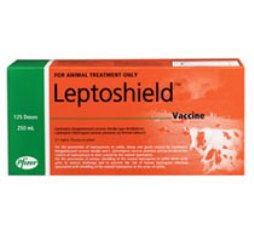The Department of Primary Industries (DPI) is reminding farmers to guard against the contagious disease Leptospirosis, which can be transmitted from animals to people. Senior Veterinary Officer for Cattle at DPI, Michael Jeffers said the lepto bacteria, as it’s commonly known, can infect cattle, pigs, horses, sheep and goats.
| “Every year there are reports of farmers who become infected,” Dr Jeffers said. “It can be a very debilitating disease in humans, frequently it can take weeks for people to recover and the long recovery time can have a significant impact on the daily operations of running a farm. “Animals infected with lepto may not show signs of illness, but all infected animals can pass the infection onto people. “Cattle become infected by eating pasture or drinking water contaminated with the lepto bug. Once eaten the bacteria lives in the animals’ kidneys and the organisms passes in urine, adding to the environmental contamination. “Dairy farmers are at most risk as cows often urinate when yarded, or being milked. The urine hits the concrete and rails, which then infects humans by entering via their eyes, nostrils, mouth or small cuts. |  |
“Wearing protective clothing at milking time will reduce the risk, but the best protection is to vaccinate your cows against lepto.”
Calves should be vaccinated twice, once at weaning and again about four to six weeks later. Heifer replacements can receive a booster shot prior to joining and then prior to calving and adult cows are given a booster at drying off time.
Dr Jeffers said DPI highly recommends vaccinating any cattle introduced on to your property.
“Cattle vaccines are now available that provide combined protection against clostridial diseases (black leg etc.) and leptospirosis.
“Vaccinating infected adult cattle will not totally eliminate the infection but lowers the level of shedding in the urine. Lowering shedding rates reduces environmental contamination therefore reducing infection rates in the cattle.”
For further information contact your local veterinarian or DPI Veterinary or Animal Health Officer or the DPI Customer Service Centre on 136 186.



